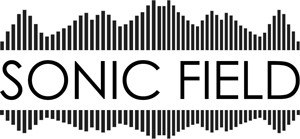El tren fantasma. CHRIS WATSON
(Touch 2011)
Regarding “El tren fantasma” Chris Watson said in an interview on Pitchfork: “…I was immersed in a location for five weeks. I lived on board the train as we crossed from Las Mochis in the Pacific to Veracruz in the Atlantic. I even slept on the train. I had a plan, which was the journey. But what revealed itself during the trip were the sounds on and off the train. You just need to be open to situations. I had the journey mapped out, but I wasn’t sure what was going to come across along the way.” *
Years ago Ferrocarriles Nacionales de México stopped operating the route “Los Mochis – Veracruz” that connected the Pacific with the Atlantic coast; when Chris Watson was working for a documentary named “Great Railway Journeys he managed to travel that route and capture sounds that years later he will use to compose “El tren fantasma”.
It’s quite interesting when an artist uses archive material that was recorded with a certain purpose with another purpose and it’s even more interesting when the material is revisited many years later: the memory from the sounds causality gets blurry and fading and the archives become an anchor to the original experience.
The whole premisse behind the work is quite poetic: memory and sound archives build a “phantasm” of this disappeared train route.
A large and complex device such as the transportation network of “Los Mochis – Veracruz” route works like a sonic universe specified by its functionality and the interaction it has with its boundaries. The beautiful sonorities captured and instrumented by the artist reveal this magic universe, this universe is the sound object removed from the actual train where a new train is build and powered by the listener’s imagination like a ghost: this is the train we listen and this is why this is such a unique exceptional for each listener.
The structure of “El tren fantasma” is fragmented and linear: the ten pieces (related to an introduction and nine cities where the route had stops) work like a narrative device that transports the listener through different moments all of them charged with imagination and fiction; the archives that originally tried to preserve moments from time now work like memories projected on an alien memory, which is what the artist using field recordings do: projects his own memory on the listener’s provoking a sensible experience of extraordinary nature. The work on its formal aspects moves from musical moments (where rhythm and melodies seem constructed) to more incidental moments of pure phonography: this technique is highly effective as the listener feels that the boundaries between fiction and reality are removed.
The transcendence of “El tren fantasma” on its conceptual, methodical and formal aspects is very strong and poetic and all this reveals a sensible experience that the listener will be thrilled when immersed into.
* From
“The out door”
PITCHFORK.
Marc Masters,
Grayson Currin
(October 21, 2011)
– John McEnroe


